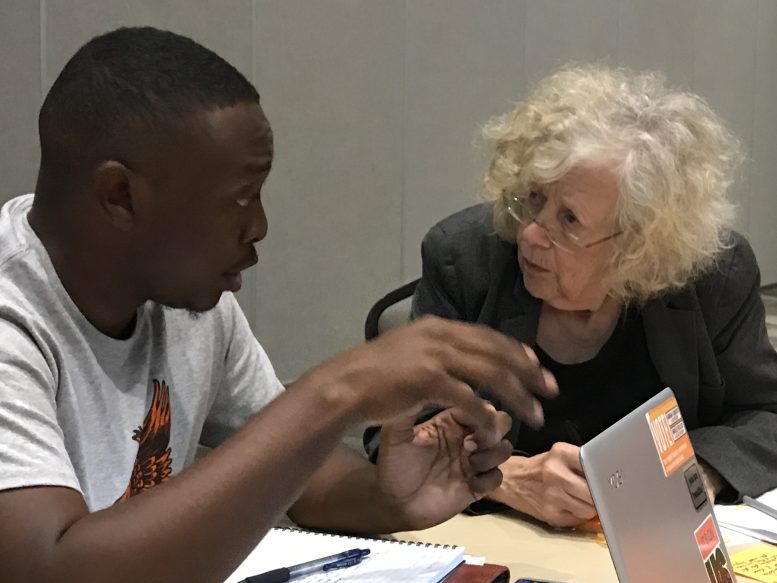By DAVID DUPONT
BG Independent News
Jenn Stucker, chair of the faculty senate, admitted she’s heard remarks about how long it’s taking to consider a proposal to change the grading system at Bowling Green State University.
Some people even thought the plus/minus grading system was already being used.
The proposal would allow faculty to add pluses and minuses a letter grade. The idea is to have increments within the grade range to encourage students to work harder to get that boost.
The change was first discussed in fall, 2017 and has gone through the academic gauntlet, explained Andy Alt, assistant vice provost for academic affairs. It has been discussed with Undergraduate and Graduate councils, and Undergraduate Student Government and Graduate Student Senate as well as a number of other entities.
Originally it was to go into place by fall, 2018, but was delayed until this fall. That didn’t happen. Marcus Goolsby, USG president, said he thinks that fall, 2020 may be too soon. “This is a change that affects every constituency.”
Alt and the committee studying the proposal will meet later this month with student government to report on the current proposal and get their feedback.
Over the past two years a number of issues were debated. Concerns included students who receive a C- instead of a C may not be able to count that course toward their majors. Would students become so concerned about their grades that they become less engaged in campus activities?
There were also questions about how this change would affect the grade point averages of those seeking certain scholarships.
Joel O’Dorisio of the School of Art said studies show after a slight decrease in the first year, implementing a plus/minus system does not affect GPAs.
The newest draft of the policy was presented to senate for debate, but no vote was scheduled. Instead, after questions were posed to Alt, the senators gathered in small groups to hash out their concerns.
In the open comment period, Peter Blass, a chemistry professor, said he was disappointed to see the A+ gone from the scale. This top grade would not carry additional weight toward the GPA. That would be administratively impossible, he said.
Still he would like the option of recognizing students who do a truly exceptional work even if it doesn’t boost their GPA.
O’Dorisio said while he has no preference which grading system is used, he thinks it should be uniform. As it stands professors could decide whether to use plus/minus grading. How the course is graded would have to be on the syllabus.
That means the same course taught by different faculty could be graded in different ways.
Christopher Frey, of the School of Educational Foundations, Policy, and Leadership, said that the committee should seek the input from other constituencies including the Office of Multicultural Affairs, Disability Services, and International Partnerships and Programs.
Goolsby said he was concerned that the committee was checking off boxes as it consulted with different constituencies.
He hears from students on both sides of the issue. Some want the system to stay the same. Others, he said, “want the opportunity to stand out.”
Raymond Berling, a USG senator, said that the change will lead to more anxiety over grades.
For some students, he said, getting a C- may mean they have to repeat a course, and then they may need an extra year to graduate. That would cost them more money.

